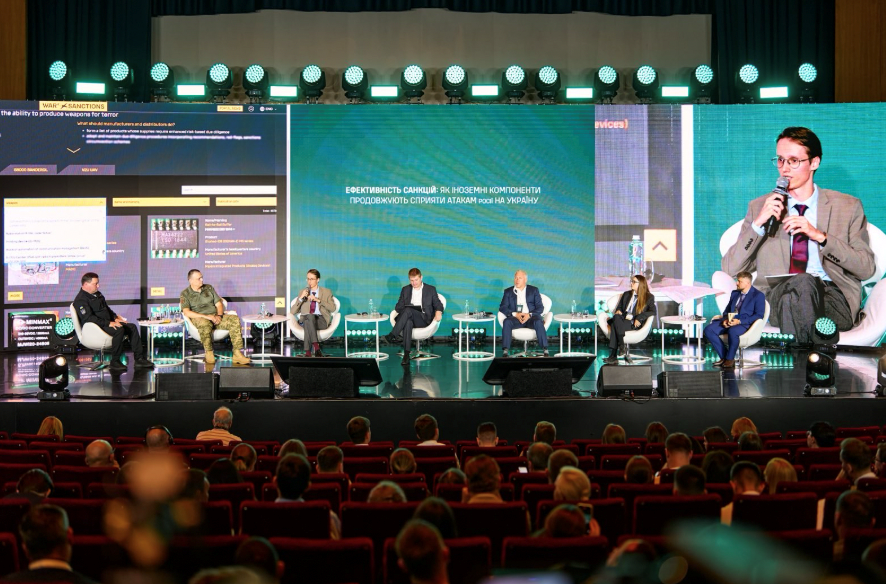In June, sanctions intensified in several directions. Canada imposed new sanctions on the Trap Aggressor suspects, including oligarchs Yevtushenkov, Lisin, Makhmudov, Shelkov, and Shaimiev – people who supply the Russian military-industrial complex with everything from microcircuits to titanium. Ukraine added four more companies from our investigations to the sanctions list that manufacture drones, guidance systems, and thermal imaging optics for the Russian army. And Australia took a historic step – it struck the Russian “shadow fleet” for the first time.
This month, we not only investigated but also publicly spoke about sanctions and our work. The Trap Aggressor team took part in the conference Fair Play, where we presented the results of three years of our work: dozens of cases of circumvention of sanctions, analyses of Western components in Russian weapons, and proposals for sanctions pressure, which are already being used by international partners. Trap Aggressor reminded: Sanctions are not bureaucracy, they are weapons. And they should work in advance.
Moscow pays Iran in gold bars. At least 1.8 tons of gold bars for $104 million – this was the price for a batch of Iranian Shahed drones, which the Russian Federation is massively using against Ukraine. The payment was made through the Sahara Thunder company, which is already under US sanctions. The settlement was made not only in gold but also in dirhams (the currency of the UAE) through UAE banks, and in cryptocurrencies. The C4ADS Center reports: this is only a part of a larger program. Russia also received Fath-360 ballistic missiles from Iran and produces Shaheds in Tatarstan, at a factory in the Alabuga SEZ, where it uses the labor of African “trainees” and students.
Google Chrome has hit Russian document flow. Google will completely block Russian plug-ins for electronic signatures – in particular, CryptoPro and extensions for the Gosuslugi portal. Extensions based on the old Manifest V2 security standard will no longer work in the new version of the Chrome browser.
Japan accepts oil from the sanctioned tanker Voyager. The Voyager tanker, carrying Russian Sakhalin Blend oil, has docked in the Japanese port of Kikuma. It is under US and EU sanctions. Despite this, Taiyo Oil has accepted the cargo in agreement with the Japanese Ministry of Economy. The reason for that is that the supply of crude oil ensures the production of liquefied gas, which is critical for the country’s energy sector.
Australia imposes sanctions on Russian vessels for the first time in history. The country has imposed restrictions on 60 vessels from the Russian “shadow fleet”. The sanctions include a ban on entry to ports, changing routes, and control over illegal oil exports. The decision is historic: for the first time, Australia is directly attacking the Kremlin’s maritime logistics. In total, Australia has already added more than 1,400 objects – companies, individuals, and vessels – to the sanctions list.
Russian billionaire Molchanov sued Ukraine over the confiscation of Aeroc. Aeroc Investment Deutschland GmbH, a company affiliated with billionaire Andrey Molchanov’s LSR group, filed a lawsuit with the International Center for Settlement of Investment Disputes. The reason is the confiscation of the Ukrainian Aeroc factories, which supplied aerated concrete before the war and, according to the Security Service of Ukraine, financed the armed aggression of the Russian Federation. In June 2023, the assets were transferred to ARMA, and in December, they were sold to a new Ukrainian owner. Now the Russian side is trying to recapture the assets through international institutions.














